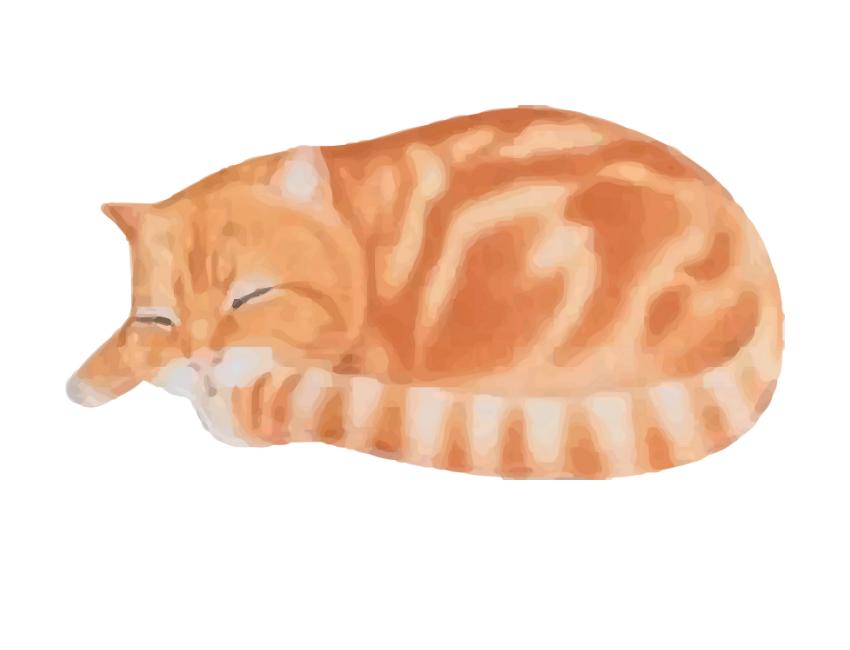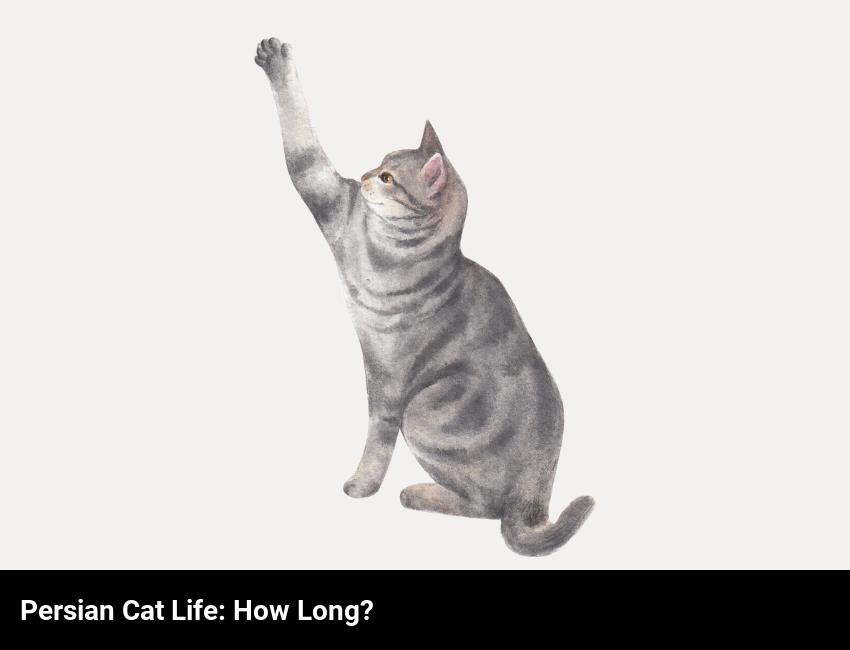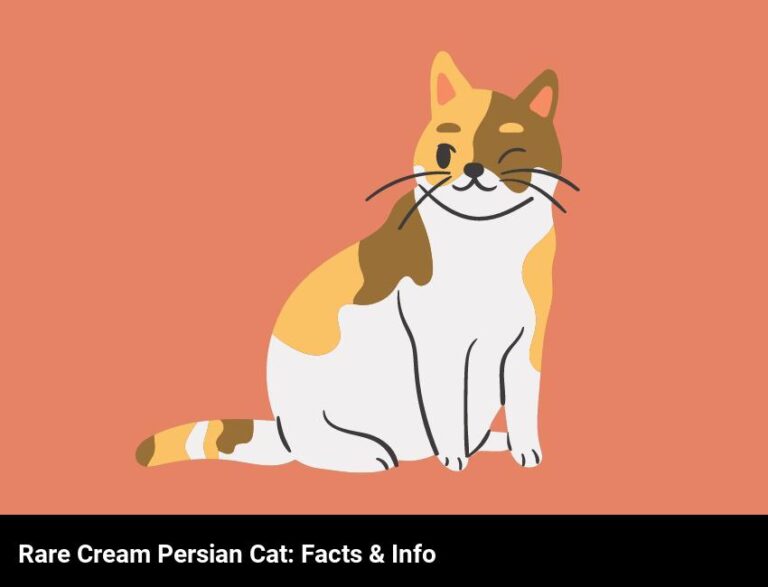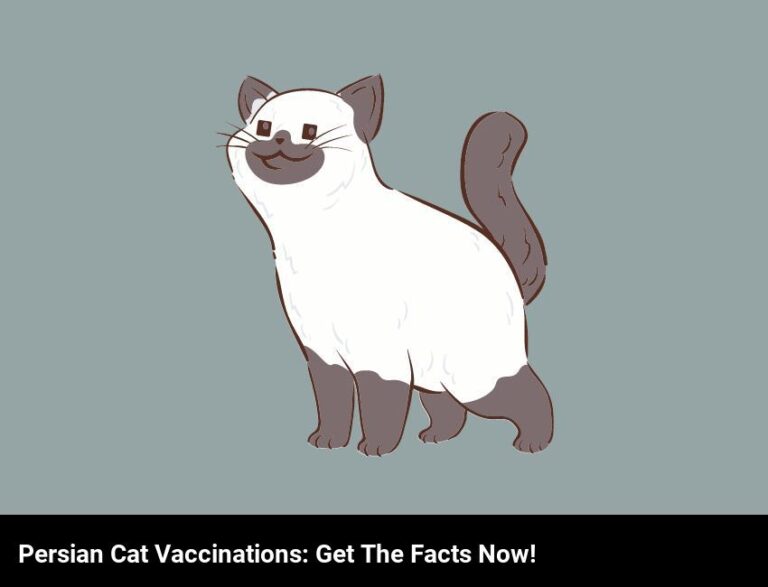Persian Cat Lifespan: How Long Do They Live?
The average lifespan of a Persian cat is around 12-16 years, with some living up to 20 years.
As the proud owner of a beautiful Persian cat, I am always curious about how long they can live. I’ve looked into the average lifespan of a Persian cat and the factors that influence it, as well as the maximum lifespan and whether there are any genetic diseases that could shorten it. Of course, I also want to know how to improve my cat’s life expectancy and what signs to look out for that their years may be coming to an end.
So, how long do Persian cats typically live? Are there any health issues that may reduce their lifespan? How does their lifespan compare to other cat breeds? After researching the answers to these questions, I’m excited to share what I’ve learned. Hopefully, you will be able to use this information to make sure your Persian cat has the longest and happiest life possible.
What is the average lifespan of a persian cat?
If you’re a Persian cat lover, you’ve probably wondered what the average lifespan of a Persian cat is. Well, the answer is: it varies! Depending on the cat’s diet, lifestyle, and genetic makeup, Persian cats can live anywhere from 12 to 17 years.
The good news is, Persian cats are relatively healthy cat breeds. They generally have fewer genetic health issues than other breeds, which means they can live longer. However, it’s important to keep in mind that any cat can be susceptible to health issues, so daily care and regular vet visits are key to ensuring your Persian cat lives a long and healthy life.
You can help your Persian cat reach their maximum lifespan with a nutritious diet and regular exercise. A diet rich in omega-3 fatty acids, antioxidants, and vitamins can help keep your kitty’s immune system strong and help them stay healthy and happy.
Additionally, providing your cat with some kind of mental stimulation is important. Playing games with your cat, such as fetch or hide-and-seek, can help keep them physically and mentally active. This can help ensure your kitty lives a long and fulfilling life.
Overall, the lifespan of a Persian cat varies depending on the cat’s diet and lifestyle. But with proper care, you can help ensure your Persian cat lives a long and healthy life.
What factors determine how long a persian cat lives?
When it comes to Persian cats, the answer to how long they live can vary depending on a variety of factors. From genetics to lifestyle, there are many things that can make a difference in their lifespan. Here are some of the key factors that determine how long a Persian cat lives.
Genetics: As with any pet, the breed of a Persian cat can greatly influence their life expectancy. Certain breeds tend to live longer than others, so it’s important to research the specific breed of Persian cat you are considering. It is also important to factor in diet and health care when it comes to genetics.
Lifestyle: Regular exercise, healthy diet, and proper veterinary care all play a role in how long a Persian cat will live. Ensuring that your Persian cat has access to plenty of space to play and exercise, a balanced diet, and regular check-ups are essential to ensuring they have a long and healthy life.
Environment: If your Persian cat lives in an environment that is too hot or too cold, it can have a negative impact on their lifespan. Ensuring your cat lives in a comfortable temperature range and is not exposed to extreme weather conditions is important to maintain their health and lifespan.
Overall Health: Persian cats that have underlying health problems, such as kidney or heart disease, can have a shorter lifespan than cats that are in good health. Regular check-ups and monitoring for any potential health issues are important for any pet, and can help ensure your Persian cat lives a long and healthy life.
Ultimately, the answer to how long a Persian cat lives depends on a variety of factors. From genetics to lifestyle, it’s important to take the necessary steps to ensure your Persian cat is given the best chance for a long and healthy life.
What are some common health issues that can shorten a persian cat’s lifespan?
When it comes to Persian cats, they’re renowned for their long and luxurious fur, friendly temperaments, and overall popularity as a pet. But, just how long do Persian cats live? Unfortunately, several health issues can affect their lifespan.
The most common health issue that can shorten a Persian cat’s lifespan is respiratory issues due to their flat face, which can lead to difficulty breathing and even asthma. Additionally, Persian cats can be prone to eye diseases, such as entropion, which is a condition where the eyelid folds inwards. This can cause irritation and infection of the eyes.
Moreover, many Persian cats suffer from dental problems due to overcrowding of their teeth. This can lead to bad breath, gingivitis, and periodontal disease. Fortunately, taking your Persian cat to the vet for regular check-ups can help prevent and treat these issues.
Finally, Persian cats can also be prone to obesity. As such, you should ensure that you are feeding your cat a balanced diet and providing plenty of exercise and stimulation to keep them healthy.
Overall, while Persian cats are beautiful and loving pets, they can be prone to a number of health issues that can shorten their lifespan. By being aware of these issues and taking your Persian cat to the vet for regular check-ups, you can help ensure your cat lives a long and happy life.
How can you improve the lifespan of your persian cat?
If you’re the proud owner of a Persian cat, you’ll want to ensure it has the longest and happiest life possible. Luckily, there are a few easy steps you can take to help increase the lifespan of your Persian cat.
The first step is to ensure your kitty is getting all the nutrients it needs. Feeding your cat a high-quality diet that is free from fillers and additives is essential. Additionally, make sure your Persian has access to plenty of fresh water.
Second, keep up with regular veterinary checkups and vaccinations. An annual visit to the vet is recommended so they can check your cat’s health and update any necessary vaccines. This will help ensure your cat remains healthy and that any issues can be caught early.
Third, give your cat plenty of exercise. Regular playtime or walks will help your Persian stay active and fit. This is especially important for indoor cats, as they may not get enough exercise otherwise.
Finally, keep your cat indoors. This will help keep them safe from predators, toxins, and other hazards. It may also reduce the risk of your cat contracting certain illnesses.
By following these steps, you can help ensure your Persian cat has the longest and happiest life possible. With the right care and attention, your kitty can live for many years to come.
What is the maximum lifespan of a persian cat?
Persian cats have a maximum lifespan of anywhere between 13 to 18 years. This is a long time for a pet, and you can expect to cuddle and enjoy your furry friend for a good chunk of your life.
Persian cats are known for their long, luxurious coats and loving personalities, which make them great pets. They’re usually quite friendly and can be quite entertaining. This, plus their long lifespan, makes them a popular choice of pet.
However, how long your Persian cat will live ultimately depends on a variety of factors. For example, their diet, exercise, and overall health will have a major impact on their lifespan. Proper nutrition, exercise, and regular visits to the vet are all key to keeping your Persian cat in good health and helping them live a long and happy life.
Another factor that can impact a Persian cat’s lifespan is their genetics. Some cats are naturally more robust than others and can live longer, while others may be more susceptible to disease and have a shorter lifespan.
The best way to ensure your Persian cat lives a long and happy life is to provide them with a healthy lifestyle and regular check-ups with the vet. With a bit of love and care, you can ensure your Persian cat has a maximum lifespan of 13 to 18 years.
Are persian cats prone to any genetic diseases that can shorten their lifespan?
Absolutely! Persian cats are prone to a number of genetic diseases that can shorten their lifespan. The most common conditions include polycystic kidney disease, hypertrophic cardiomyopathy, and skeletal dysplasia.
Polycystic kidney disease is a hereditary disorder that is common in Persian cats. It occurs when fluid-filled cysts form in the kidneys, leading to kidney failure. This condition can cause a decrease in lifespan if not treated promptly.
Hypertrophic cardiomyopathy is a heart condition that can cause serious problems in Persian cats. It is caused by abnormal thickening of the heart muscle, which can lead to heart failure. This condition can shorten the lifespan of a Persian cat if not treated.
Skeletal dysplasia is a genetic disorder that affects the development of bones and joints in Persian cats. It can cause deformities and weakened bones, which can lead to a decrease in lifespan.
To ensure that your Persian cat lives a long and healthy life, it is important to get them checked by a veterinarian regularly. This will help you to catch any of these conditions early, before they become too serious and decrease your cat’s lifespan.
How does the lifespan of a persian cat compare to other cat breeds?
When considering the lifespan of a Persian cat, it’s important to take into account the breed’s average lifespan. Generally, Persian cats tend to live between 15 and 20 years. This is a longer lifespan than the average of most cats, which is between 10 and 15 years.
However, how the Persian cat’s lifespan compares to other cat breeds depends on the individual cat’s genetics and lifestyle. For example, a Persian cat with healthier genetics and a healthier lifestyle will likely live a longer life than a Persian cat with weaker genetics and an unhealthier lifestyle. Plus, there are some cat breeds with even longer lifespans than the Persian cat, such as the Siamese cat, which can live up to 20 years or more.
To ensure your Persian cat has the best chance at a long and healthy life, it’s important to give them the proper care. This includes providing them with quality nutrition, regular veterinary checkups and plenty of exercise. Taking these measures can help your Persian cat live a long and happy life.
What are the signs that your persian cat is reaching the end of its lifespan?
When your Persian cat starts to reach the end of its lifespan, there are several signs that you should look out for. First of all, your cat may start to lose its appetite. You may notice that food isn’t being eaten as much as it used to, or that your cat is losing interest in treats. Secondly, your cat may become less active than usual. It may no longer have the energy to run around and play like it used to.
Thirdly, you may notice that your cat is sleeping more than normal. You may notice it taking long naps throughout the day, or even barely staying awake for longer than a few minutes. Fourthly, your cat may start to get confused more easily. It may have trouble recognizing familiar objects or places, or it may get lost or wander off more easily.
Finally, as your cat approaches the end of its lifespan, it may become more withdrawn and less social. It may spend more time alone and may not be as interested in spending time with you as it used to be. These are all signs that your Persian cat is reaching the end of its lifespan, and it’s important to be aware of them in order to provide the best care for your pet at this time.

Frequently Asked Questions
What activities can i do to give my persian cat the best life possible?
To give your Persian cat the best life possible, there are several activities you can do. Make sure your cat is fed a healthy, balanced diet. Provide plenty of toys, scratching posts, and other stimulating activities. Take your cat to the vet for regular check-ups, vaccinations, and parasite prevention. Provide your cat with plenty of cuddle time and playtime. Give your cat a clean and comfortable place to rest and sleep. Regularly groom your cat and keep their nails trimmed. Finally, make sure your Persian cat has a safe and secure environment.
Are there any unique health benefits associated with owning a persian cat?
Yes, there are several unique health benefits associated with owning a Persian cat. Persian cats are less prone to genetic diseases due to their selective breeding. They also have a lower risk of developing cardiomyopathy and respiratory issues due to their short, flat noses. Persian cats tend to be less active than other breeds, which may help reduce their risk of joint issues. Owners of Persian cats can also be sure their cats have received the necessary vaccinations and regular check-ups from a trusted vet.
Can i do anything to add extra years to my persian cat’s life?
Yes, you can do things to help your Persian cat live longer. By providing a balanced diet, plenty of exercise and regular veterinary checkups, your cat can stay healthy and active for many years. Additionally, creating a calm and stress-free environment can help your cat live longer and happier.







